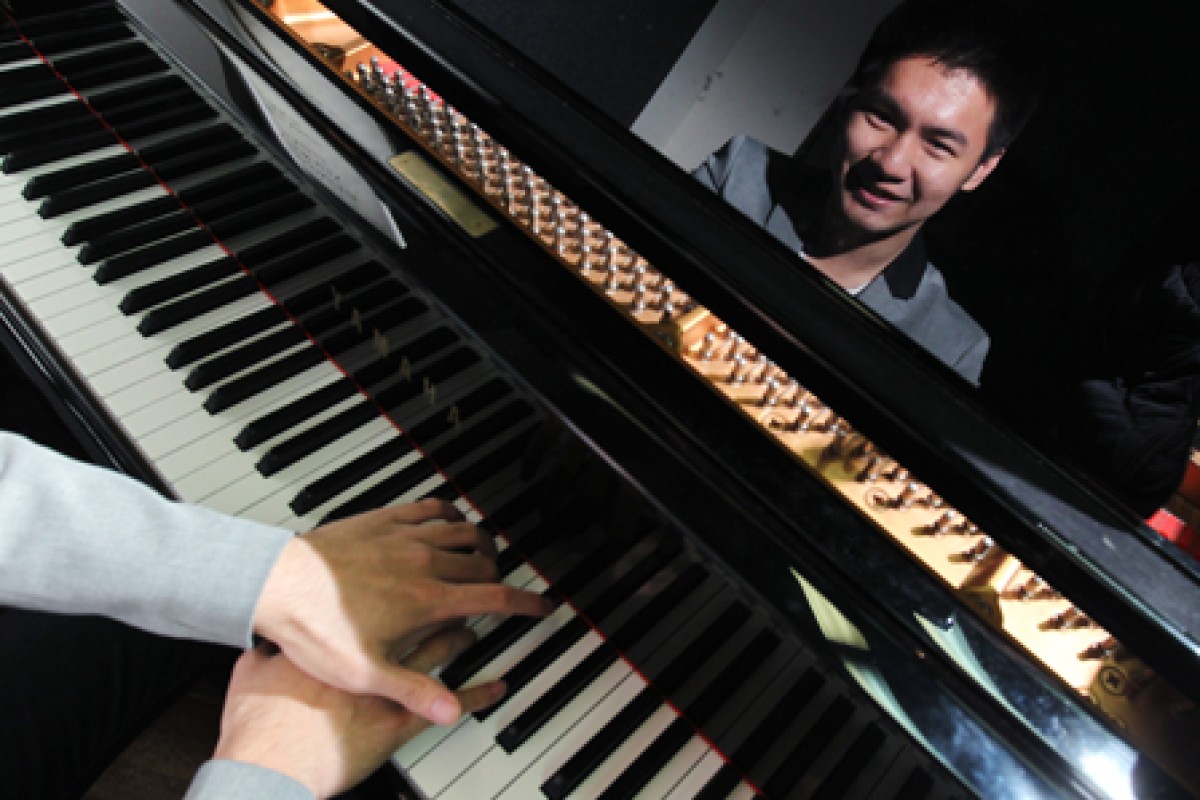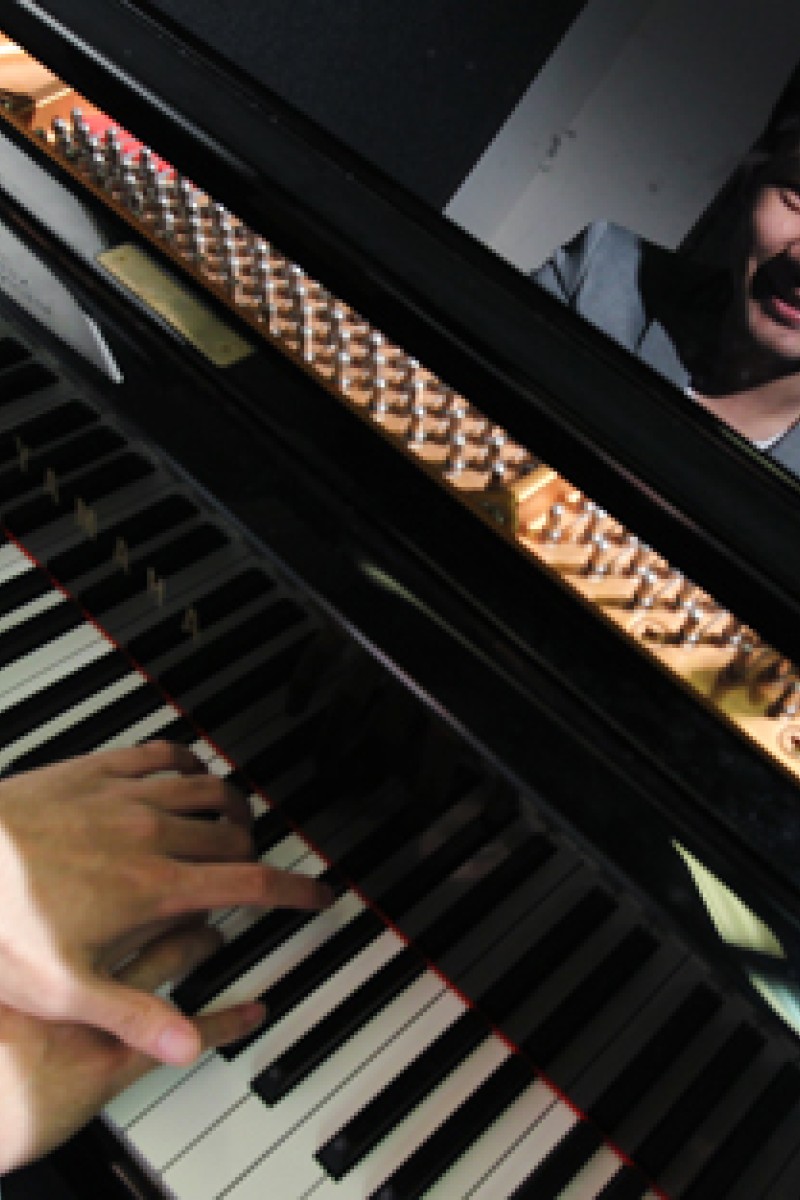 American-born composer and pianist Conrad Tao performed with the Hong Kong Philharmonic Orchestra last week.
American-born composer and pianist Conrad Tao performed with the Hong Kong Philharmonic Orchestra last week.Wolfgang Amadeus Mozart, Yo-Yo Ma and Lang Lang are recognised as classical music sensations who discovered their talents at a young age.
Some people have described them as prodigies, and while their gifts have brought them fame and recognition from global audiences, young musical talent Conrad Tao Yiwen feels the term "prodigy" can have occasional drawbacks.
"There are a lot of associations with the word, lots of signifiers [labels] of this kind of person, that I don't feel that I am," Tao, 18, says.
"I don't like labels in general ... They're limiting. It's like, just because this is your category, this is your label, this is what you can be and should be. And that's so boring to me. I believe in the power of self-determination, in our having total control over who we are. So, the word 'prodigy' doesn't offend me or anything like that, but it's not how I see myself."
At 18 months old, when most babies are just starting to put together a few words, Tao was already banging away on the piano, playing simple children's songs such as Mary Had a Little Lamb by ear. At the age of four, he gave his first piano recital and has been performing ever since.
Fast-forward to today. His list of accomplishments includes winning the ASCAP Morton Gould Young Composer Award eight years in a row, being a US Presidential Scholar in the Arts, a Gilmore Young Artist (an award given every two years to the most promising American pianists) and the only classical musician on Forbes' 2011 "30 Under 30" list of influential people. He's also an accomplished violinist, having learned to play before he officially started learning the piano because his hands were too small.
Tao, born in the US to Chinese-born parents with PhDs, may sound like every tiger mother and wolf father's dream child, but his parents were actually scared and confused when they first found that he was gifted. Neither of them was a musician, so they had no notion of what the music business was like. Tao believes this was beneficial, as they went through the learning process together, bringing the entire family closer.
"A lot of people ask if I think I missed out on anything when I was younger, but honestly, no," he says. "Because I don't know what any other life would be, and I'm happy about that. I most definitely [enjoyed my childhood] because I was doing something that I loved from the very beginning, and I was always able to pursue it pretty seriously. I don't think a lot of people get that opportunity, very early on, to find something that's really interesting and inspiring to them."
Tao was in Hong Kong last week with his family as he performed Mozart's Piano Concerto No.21 with the Hong Kong Philharmonic Orchestra. This isn't his first time working with the orchestra; he was commissioned to compose a piece, Pangu, for the inauguration concert of new conductor Jaap van Zweden in September. He describes working with an orchestra as exciting, difficult, and fun all rolled into one, as there are so many instruments at his disposal. It's a challenge that he enjoys tackling as he continues looking to redefine the classical music genre.
"I would like to find ways of bringing audiences in a slightly different way," he says.
"There are so many material ways that classical performances can be different ... I want to think about how art shifts. I'm not as interested in just having these things be rigid and set.
"I think what's so interesting about the older works, besides the fact that they're old and established and everyone knows and loves them, is that people are constantly playing them over and over. It means that they're still constantly establishing, changing and evolving."
